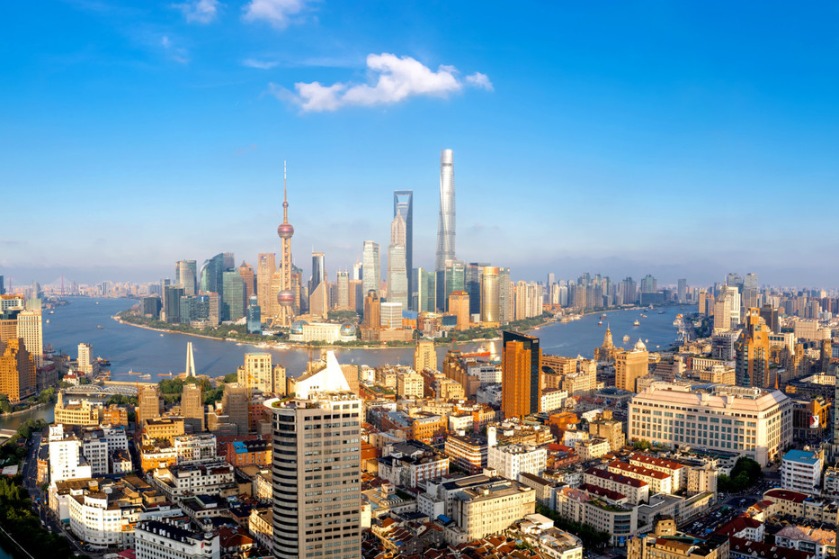Critical mass


SONG CHEN/CHINA DAILY
Greater commitments to action are needed at COP28 to generate sufficient gravitational force to put the brake on climate change
The 28th Conference of the Parties to the United Nations Framework Convention on Climate Change (COP28) in Dubai, which begins on Nov 30, will be a critical milestone for the implementation of the landmark Paris Agreement of 2015.
The Paris Agreement was forged at COP21 and is intended to guide the world's actions to avoid dangerous climate change. It committed countries to "holding the increase in the global average temperature to well below 2 C above pre-industrial levels and pursuing efforts to limit the temperature increase to 1.5 C above pre-industrial levels, recognizing that this would significantly reduce the risks and impacts of climate change".
In order to meet this goal, countries agreed to reach carbon neutrality, or net zero emissions of greenhouse gases "in the second half of this century".
The agreement also includes a pledge to "conserve and enhance" natural sinks of carbon dioxide, particularly forests, and to establish a global goal on adaptation to increase resilience and reduce vulnerability to those impacts of climate change that cannot now be avoided.
Each country committed to submit their nationally determined contributions (NDCs) outlining the actions they will take to achieve the Paris Agreement. These national plans are reviewed every five years in a Global Stocktake, the first of which is due to be completed at COP28.
However, since 2015 further scientific evidence has highlighted the extreme risks we face from climate change impacts. In 2018, the Intergovernmental Panel on Climate Change published a special report that pointed out the extent of harm that the world, particularly developing countries, will suffer if global temperature rises by more than 1.5 C above its pre-industrial level.
Importantly, bigger rises in temperature increase the probability of triggering potentially catastrophic climate thresholds, such as destabilization of the major ice sheets in West Antarctica and Greenland, which would lead to a devastating rise of several meters in the global sea level over the coming centuries. And thawing of the permafrost in cold regions could release further carbon dioxide and methane, an even more powerful greenhouse gas.
The report concluded that if the world could cut its emissions of carbon dioxide, the main greenhouse gas, to net zero by 2050, the world would have a 50 percent chance of avoiding warming of more than 1.5 C. As a result, many economies have set targets to cut their annual emissions of greenhouse gases to net zero by 2050.
Unfortunately, we already know that the Global Stocktake will reveal that current national plans are collectively inadequate to stop warming of more than 1.5 C. An official assessment of the NDCs published earlier this month found that global emissions in 2030 would be consistent with warming of between 2.1 C and 2.8 C by the end of the century. This would likely have disastrous consequences for the world, particularly developing countries.
It is vitally important that all countries respond to the findings of the Global Stocktake by increasing the ambition of their cuts in emissions, and reflect these in revised NDCs that are due to be submitted by 2025.
Fortunately, there is greater understanding now that many of the actions and investments required to accelerate emissions cuts can create widespread benefits, including reduced air pollution, healthier ecosystems, improved energy efficiency and higher productivity. The economic impacts are likely to be very significant. Indeed the transition to a zero-emissions and climate resilient global economy would be the economic growth story of the 21st century.
But to realize this we will need real leadership. China has emerged as an international leader on climate change through its huge investments in renewable energy and technologies such as electric vehicles and batteries.
Importantly, China has renewed its cooperation with the United States on climate change. President Xi Jinping and President Joe Biden earlier this month were able to agree on important areas of collaboration following the excellent work done by their special climate envoys, Xie Zhenhua and John Kerry.
The leadership shown in 2014 by President Xi and former US president Barack Obama helped to bring the countries together to achieve the Paris Agreement in 2015. It gives hope to the world to see the two largest-emitting nations once again finding common ground on tackling climate change.
China can set a very important example for the world of how to accelerate action on climate change through its 15th Five-Year Plan (2026-30). The world hopes that China's emissions can peak before 2025 and start to reduce rapidly in the second half of this decade.
I worked with scholars from China, the United States and United Kingdom to produce a report earlier this year on how China can seize the economic benefits from the drive to carbon neutrality through its investments. I hope that this report will help to inform the many important discussions taking place about the 15th Plan and China's revised NDC.
Investment is absolutely key to helping developing countries to overcome poverty and raise living standards through sustainable, inclusive and resilient development and growth. Rich nations must agree at COP28 to increase the flow of public and private investment into developing countries if action on climate change is to be accelerated following the Global Stocktake. Investments must be urgently oriented toward building clean energy infrastructure in order to reduce cost, increase security and move strongly away from fossil fuels.
China can also significantly boost zero-emissions and climate-resilient development in other countries through its overseas investments. These investments must be financed and China can play a crucial role in facilitating the major increase in flows that are necessary, from both the private sector and the multilateral development banks.
The window of opportunity to avoid dangerous climate change is rapidly disappearing and may close completely without strong progress at COP28. The world must seize this chance and usher in a new age of peace and prosperity shared equitably between all nations.
The author is chair of the Grantham Research Institute on Climate Change and the Environment at the London School of Economics and Political Science. The author contributed this article to China Watch, a think tank powered by China Daily. The views do not necessarily reflect those of China Daily.
Contact the editor at editor@chinawatch.cn.


































